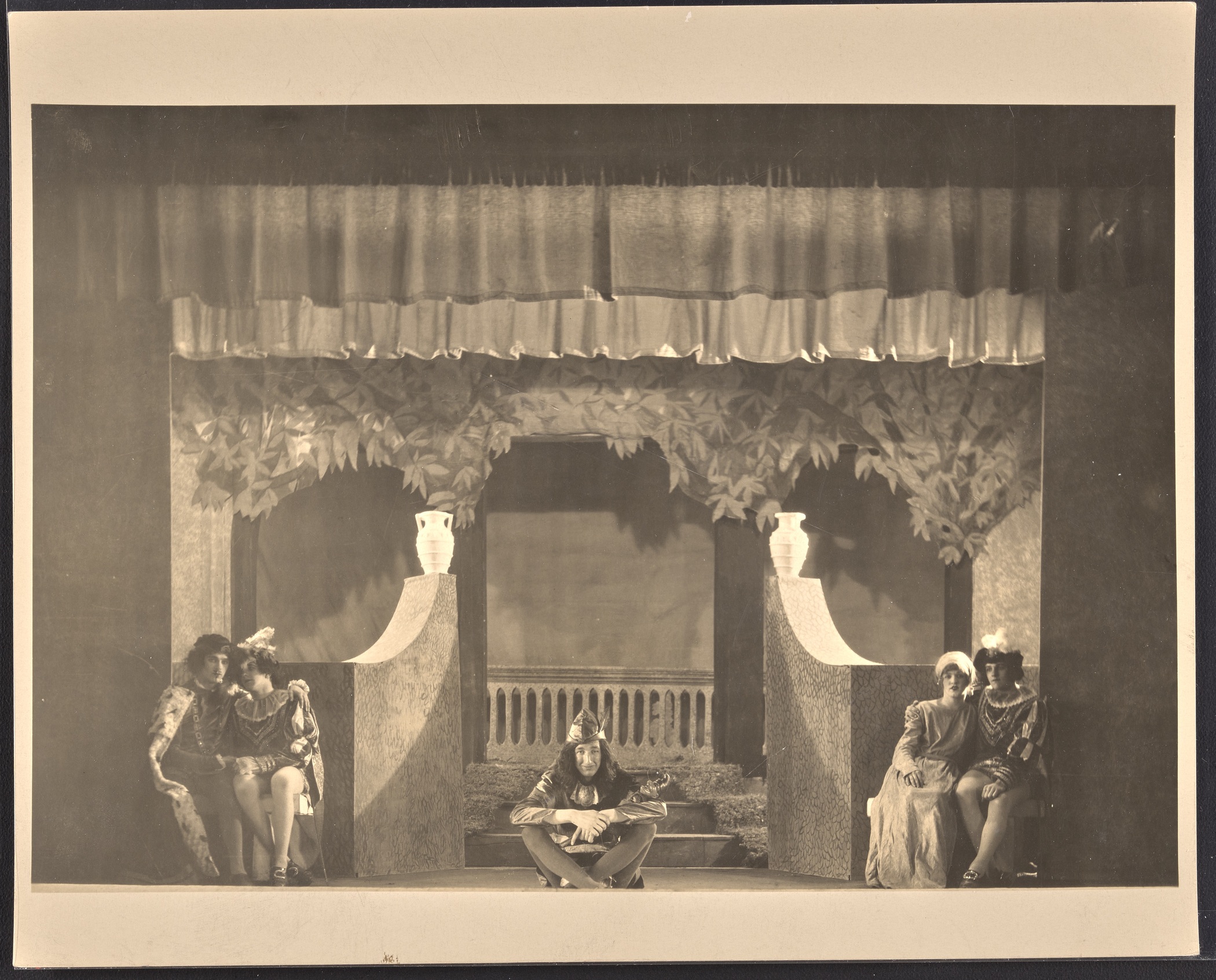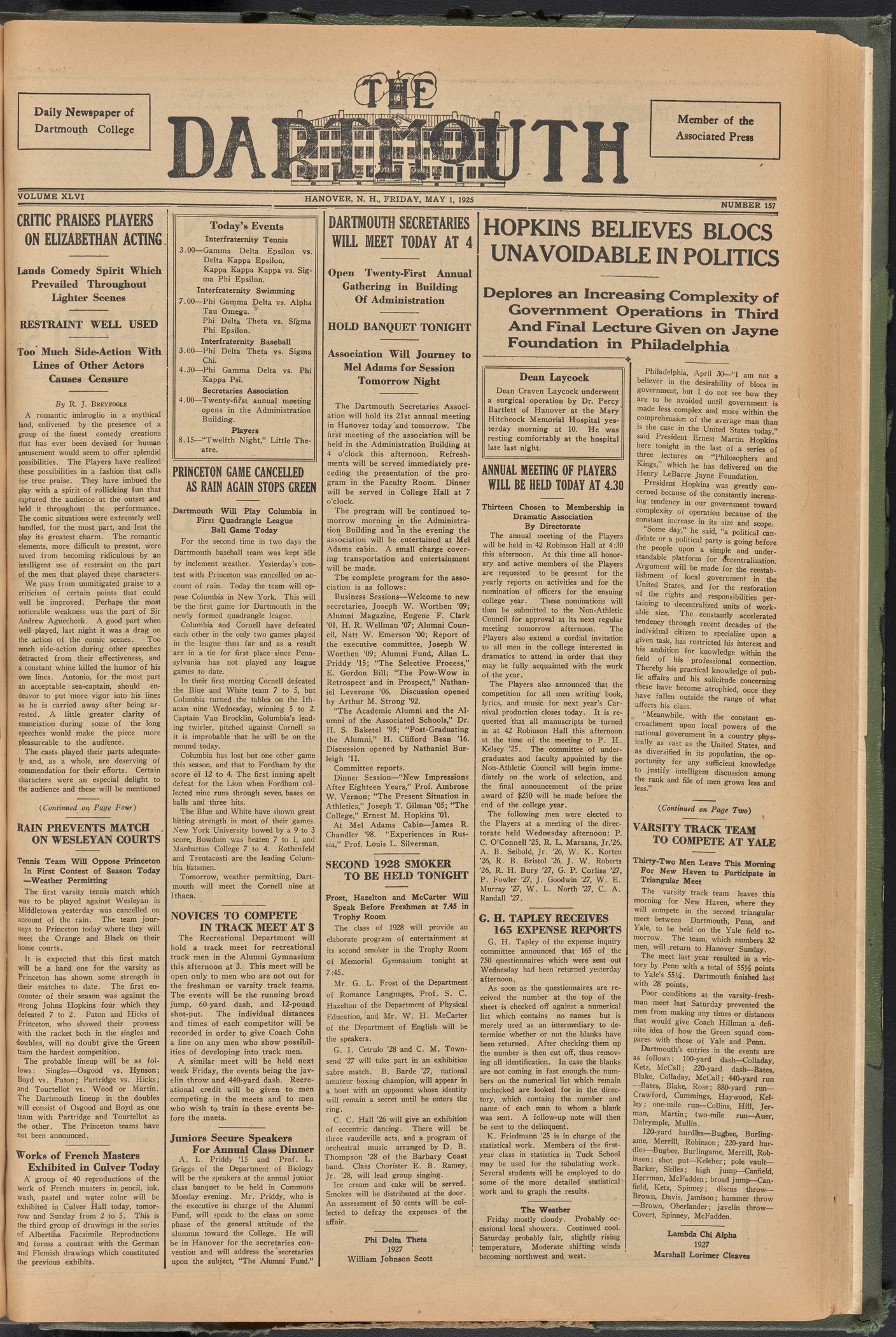Ridiculousness and Restraint
"The comic situations were extremely well handled, for the most part, and lent the play its greatest charm. The romantic elements, more difficult to present, were saved from becoming ridiculous by an intelligent use of restraint on the part of the men that played these characters. [...] The casts played their parts adequately and, as a whole, are deserving of commendation for their efforts."
Robert J. Breyfogle, class of 1926, wrote a review of the 1925 production of Twelfth Night for the Dartmouth. Although he complimented the comedy of the play, the sentiments on campus surrounding female impersonation onstage seem to have bled into Breyfogle’s review. He claimed that the romantic scenes among Orsino, Olivia, and Viola were only saved from “becoming ridiculous” by an “intelligent use of restraint” on the parts of the actors playing these roles. It seems that, despite their gender-bending choice of play, the Players conceded to President Hopkins’ point of view and limited the romance in the show to prevent the play’s queer undertones from becoming too obvious.


